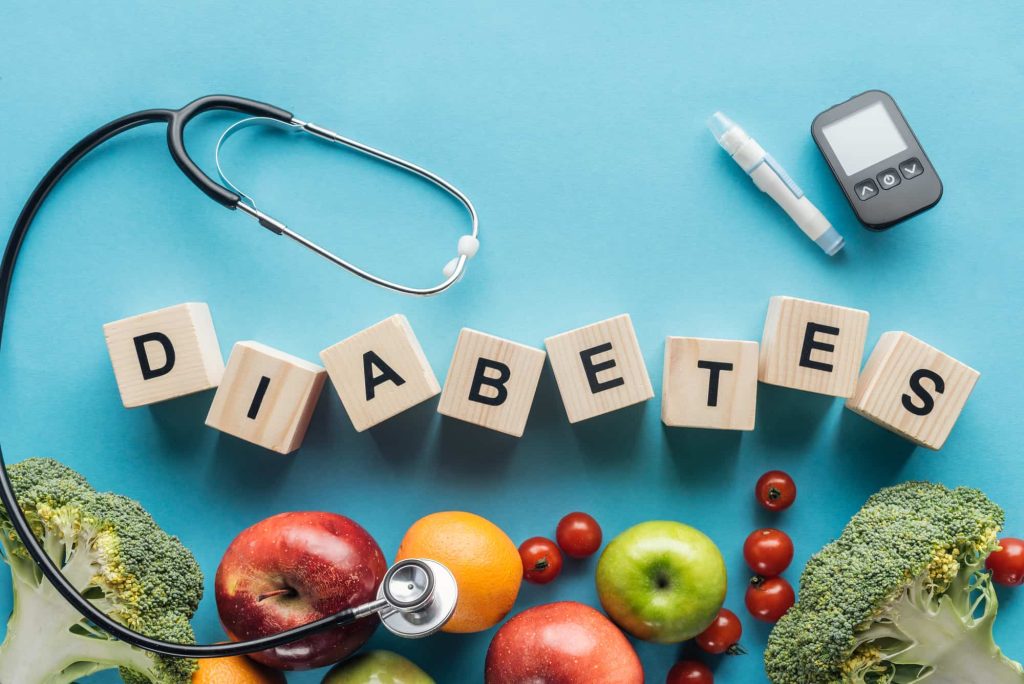Diabetes, a chronic metabolic disorder, has become a prevalent health concern worldwide. Characterized by elevated blood sugar levels, it affects how your body processes glucose, leading to various complications if left unmanaged. With proper understanding and lifestyle adjustments, individuals can effectively manage diabetes and lead fulfilling lives.
What Food is Good for Diabetes?
Maintaining a balanced diet is crucial for managing diabetes. Incorporating nutrient-rich foods that help regulate blood sugar levels can significantly impact overall health. Here are some diabetes-friendly foods:
Vegetables: Non-starchy vegetables such as leafy greens, broccoli, cauliflower, and bell peppers are low in calories and carbohydrates while being rich in vitamins, minerals, and fiber.
Whole Grains: Opt for whole grains like quinoa, barley, brown rice, and oats over refined grains. They provide sustained energy and are high in fiber, which helps stabilize blood sugar levels.
Lean Proteins: Choose lean protein sources such as poultry, fish, tofu, legumes, and eggs. Protein-rich foods aid in muscle repair and satiety, preventing sudden spikes in blood sugar.
Healthy Fats: Include sources of healthy fats like avocados, nuts, seeds, and olive oil in moderation. These fats promote heart health and help improve insulin sensitivity.
Fruits: Select fruits with low glycemic index (GI) such as berries, apples, oranges, and cherries. These fruits contain natural sugars and fiber, which slow down sugar absorption.
Dairy: Opt for low-fat or non-fat dairy products like Greek yogurt and skim milk. They provide essential nutrients like calcium and protein without excess saturated fats.
What Food is Not Recommended in Diabetes?
Avoiding certain foods can help manage blood sugar levels and prevent complications associated with diabetes. Here are some foods to limit or avoid:
Sugary Foods: Minimize the intake of sugary beverages, desserts, candies, and processed snacks. These foods can cause rapid spikes in blood sugar levels.
Refined Carbohydrates: Limit consumption of white bread, white rice, sugary cereals, and pastries. These foods lack fiber and can lead to sharp increases in blood glucose levels.
Saturated and Trans Fats: Reduce the consumption of fried foods, fatty cuts of meat, butter, and full-fat dairy products. These fats can contribute to insulin resistance and cardiovascular disease.
High-Sodium Foods: Cut back on salty snacks, canned soups, processed meats, and fast food. Excessive sodium intake may increase the risk of hypertension and cardiovascular complications.
Alcohol: Moderate alcohol consumption is recommended for individuals with diabetes. Excessive alcohol intake can interfere with blood sugar control and cause hypoglycemia.
Harmful Activities in Diabetes
In addition to dietary considerations, certain lifestyle habits can worsen diabetes management and increase the risk of complications. Harmful activities to avoid include:
Sedentary Lifestyle: Lack of physical activity can lead to weight gain, insulin resistance, and poor blood sugar control. Engage in regular exercise such as brisk walking, cycling, swimming, or strength training to improve insulin sensitivity and overall health.
Smoking: Smoking is associated with insulin resistance, cardiovascular disease, and other health complications. Quitting smoking can significantly reduce the risk of diabetes-related complications and improve overall well-being.
Stress: Chronic stress can elevate cortisol levels and interfere with blood sugar regulation. Practice stress-reducing techniques such as meditation, deep breathing exercises, yoga, or spending time in nature to promote relaxation and emotional well-being.
Irregular Sleep Patterns: Inadequate sleep or disrupted sleep patterns can disrupt hormone levels and impair glucose metabolism. Aim for 7-8 hours of quality sleep per night to support optimal health and diabetes management.
How Can We Cure Diabetes?
While there is currently no cure for diabetes, it can be effectively managed through lifestyle modifications, medication, and monitoring. Here are some strategies for managing diabetes:
Healthy Eating: Follow a balanced diet rich in fruits, vegetables, whole grains, lean proteins, and healthy fats. Monitor portion sizes and carbohydrate intake to regulate blood sugar levels.
Regular Exercise: Incorporate physical activity into your daily routine to improve insulin sensitivity, control weight, and enhance overall health. Aim for at least 150 minutes of moderate-intensity exercise per week.
Medication: Take prescribed medications as directed by your healthcare provider to help control blood sugar levels. This may include insulin injections, oral medications, or other injectable medications.
Monitoring: Regularly monitor blood sugar levels using a glucometer and follow your healthcare provider’s recommendations for frequency and target ranges. Monitoring helps track progress and identify patterns that may require adjustment in treatment or lifestyle.
Education and Support: Stay informed about diabetes management through education programs, support groups, and resources provided by healthcare professionals. Seek support from family, friends, or mental health professionals to cope with the emotional challenges of living with diabetes.
In conclusion, diabetes is a complex condition that requires lifelong management. By making healthy lifestyle choices, monitoring blood sugar levels, and adhering to treatment plans, individuals with diabetes can minimize complications and lead fulfilling lives. Consult with your healthcare provider for personalized guidance and support in managing diabetes effectively.

